The House passed a pair of bills Wednesday night aimed at combating the nationwide baby formula shortage as Democrats scramble to get more supplies on store shelves.
The House voted 414-9 to approve a measure that would allow more formula to be purchased with money from a federal program that aids low-income women, infants and children.
In a more partisan 231-192 vote, the House passed a bill that would send $28 million to the Food and Drug Administration to help boost formula supply and prevent future shortages. Only 12 Republicans voted for that measure.
Both bills now head to the Senate.
The House action comes just hours after President Joe Biden announced he was invoking the Defense Production Act to prioritize key ingredients for formula production and to compel suppliers to provide needed resources to manufacturers. He also launched a program that will use U.S. military aircraft to import formula from abroad.
Rep. Rosa DeLauro, who chairs the Appropriations Committee and authored the FDA funding bill, said before the vote that most of the money in the legislation would pay for additional FDA employees, including inspectors who could help approve domestic or international formula manufacturing companies.
“FDA does not have the adequate inspection force to be able to do that and to do it in a timely way,” DeLauro, D-Conn., said. “So the crux of this is providing infrastructure … in order to do what needs to get done. And that is about, as quickly as possible, how we get product in and get it on the shelves.”
Senate Majority Leader Chuck Schumer, D-N.Y., said he will try to pass the Senate version of DeLauro’s bill this week. “We hope no one will block it. It is such an immediate need,” he said.
House Republicans bashed the bill ahead of Wednesday’s vote.
Rep. Guy Reschenthaler, R-Pa., said on the House floor that the legislation “does nothing — I repeat, nothing — to put more formula on store shelves or hold Biden’s FDA accountable for ignoring this crisis.”
Rep. Tom Cole, R-Okla., said at Tuesday’s Rules Committee meeting that the measure was designed to make it look as though Democrats “were doing something about this crisis without actually doing anything.”
The baby formula shortage is largely connected to an Abbott Nutrition facility in Sturgis, Michigan, that the FDA shuttered over a suspected link to the deaths of two infants from bacterial infections. Abbott has denied any wrongdoing.
The FDA announced this week that it had reached an agreement with Abbott to begin reopening the facility, but a court must approve the agreement before it takes effect. Abbott previously said it would take up to two weeks to restart the plant and six to eight weeks more for product to become available in stores.
The Biden administration, which has been working with other producers to increase their output to make up for the shortfall, is looking to ease restrictions on imported formula.
The other bill passed on Wednesday — the Access to Baby Formula Act, sponsored by Rep. Jahana Hayes, D-Conn. — would allow more formulas to be purchased with benefits under the Special Supplemental Nutrition Program for Women, Infants and Children, or WIC.
Hayes’ office said federal data shows Abbott formula products serve 89 percent of the million-plus infants covered by WIC.
Ali Vitali, Kyle Stewart, Haley Talbot and Garrett Haake contributed.

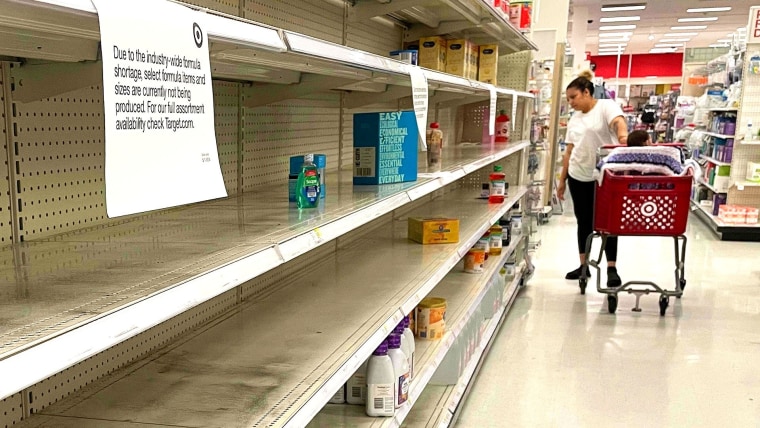


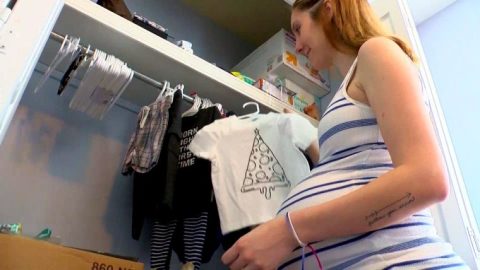
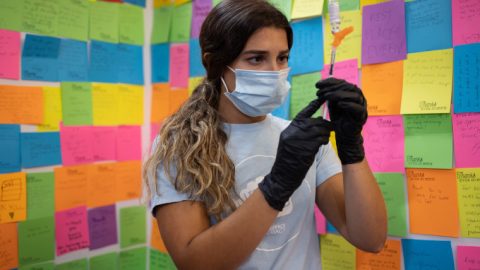

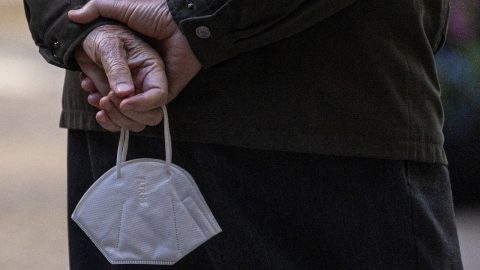
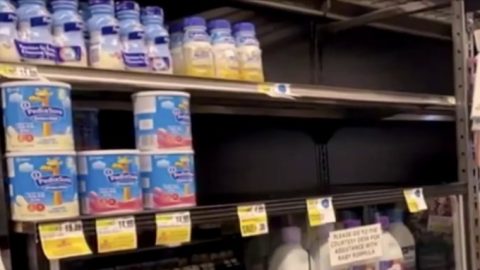
Recent Comments